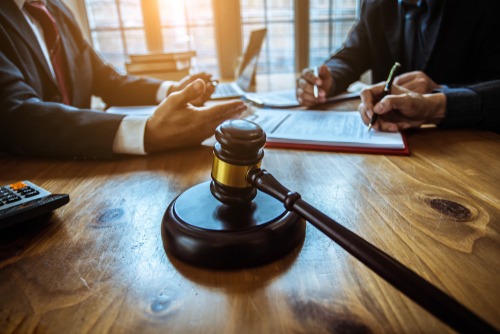Your guide to Emergency Bankruptcy
Published 11/13/20 by Admin
What Is an Emergency Bankruptcy?

An emergency bankruptcy filing makes it so that your creditors cannot take any actions to seize or sell your assets. The second that you file the main forms, your creditors must stop their efforts to collect on your debts.
You may want to file an emergency bankruptcy if your creditors have threatened to take immediate action against you. With an emergency bankruptcy, you don’t have to file all of the forms that are necessary for a regular bankruptcy. The law allows this so that you can stop your creditors from starting foreclosure proceedings, repossessions or garnishing your wages.
Why File an Emergency Bankruptcy?
When people are experiencing extreme financial hardship, they feel powerless. These people received notices of foreclosure or wage garnishment, and it only causes them to experience anxiety. It is their word against these big, powerful companies, and they don’t know how to stop them. Some people’s answer is to pretend that it isn’t happening. They may have even been working on paying their debts when they were surprised by the notices of foreclosure or wage garnishment. They believed that they were doing what they needed to do about this situation, but they found out that they were wrong. These are the times when an emergency bankruptcy can help.
What Do You Need to File for an Emergency Bankruptcy?
You will need to fit the following requirements and submit the following documents to the court:
Qualify for an Emergency Bankruptcy
If you file for Chapter 7 bankruptcy, you must meet the means test. Then, you must not have filed for Chapter 7 bankruptcy in the past eight years, and you must not have received a discharge. If you did not receive a discharge and your case was dismissed within one year of filing your current case, you will only have the benefit of an automatic stay for 30 days after filing for bankruptcy. If you want to extend the automatic stay, you must file a motion for the extension right away.
Attend a Credit Counseling Course
Before you can file for bankruptcy, you must complete your court-approved credit counseling course. You will be exempt from this rule if you tried to obtain credit counseling from a court-approved counselor in the past seven days and haven’t been able to find one.
Fill Out the Minimum Required Forms
- Form 101 is the first eight pages of the bankruptcy petition.
- The second document must contain the names and addresses of every creditor.
- Form 121 is your statement of Social Security number.
File for an Emergency Bankruptcy and Pay the Fee

The day that you file for an emergency Chapter 7 bankruptcy will be the same day that you will pay the fee. The court may determine that you cannot afford to pay the fee. If not, you will be able to pay in installments.
By hiring Columbus bankruptcy attorneys with Barr Jones & Associates, you will have someone to help you with this process. You will need to know several things about your case, but your Columbus bankruptcy attorney will keep track of these things. You will also need to inform your creditors that you filed for bankruptcy, but your Columbus OH bankruptcy attorneys will be able to do this for you.
You will receive notices from the court when you file for bankruptcy. One example is the deficiency notice, but a top Columbus bankruptcy attorney will explain this document to you. This notice tells you what you need to gather for your hearing, so if you don’t understand anything, your top bankruptcy attorney Columbus will make sure that everything is clear. You must also complete your filing before the deadline, and if you have bankruptcy attorneys in Columbus OH, you will never miss one. Contact us today.
